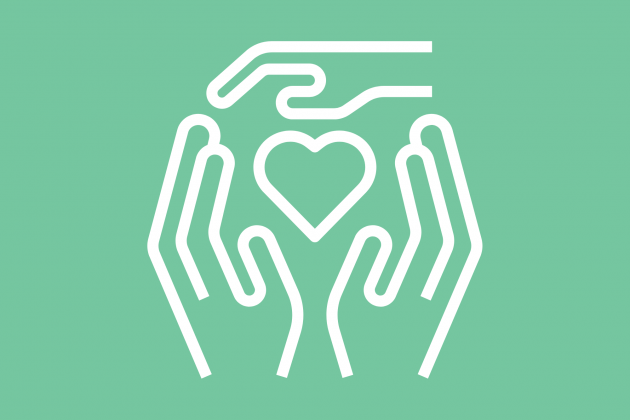
When we talk about sexual health, we don’t often associate this topic with babies and kids, but we should. As a parent or caregiver, we want our children to grow up healthy and happy, and that includes their sexual health and wellbeing. Sex positive parenting can help us prioritize our children’s sexual health, a key part of health, and ensure we teach our kids about gender and sexuality.
Sex positive parenting: What does it mean?
Some people may be worried about the “sex” part in “sex positive.” What does being sex positive as a parent mean? Does it mean encouraging children or teenagers to have sex? Or exposing them to inappropriate materials or topics? Don’t worry, because that’s not what it means!
Sex positive parenting is teaching — in age and developmentally appropriate ways – that learning about bodies, relationships, and , eventually, sexuality is a natural, normal, and healthy part of childhood, adolescence, and adulthood. This means educating ourselves, so we are able to bring important conversations into our homes about topics like consent, body safety, gender norms, gender identity, intimacy, and healthy relationships. It means answering questions from our kids when they come up (or prompting them when they don’t) and becoming a trusted go-to educator and resource for our children. It means offering them the opportunity to practice setting boundaries, communicating with others, and cultivating a positive body image.
We are all sexual beings from the moment we’re born. We know that sexual health and wellbeing are vital to living a full life. Being a sex positive parent means knowing that our children will become autonomous adults with their own gender identities, gender expressions, and sexualities. This is why it is important to prepare and support them as they learn how to stay healthy while they grow into who they are. Providing this support to our children is a lifelong process. Conversations start early and continue throughout the years with age-appropriate explanations and skills building opportunities.
What’s sex negativity? What’s sex positivity? To bring the idea of sex positivity in our parenting, it’s important that we have a good understanding of what it means. Sex -positivity is a concept that was created as a response to a sex negative understanding of sexuality. Click here to read more about those two super important ideas. In short:
Sex negativity is the belief we have, consciously or not, that sex is harmful, shameful, gross, disgusting, or sinful and so, can only be ok if its controlled by strict norms. This understanding of sexuality has deep historical roots in Western culture and cultures impacted by the West’s colonial legacy.
Sex positivity considers sexuality as a natural, normal, healthy, and pleasurable part of being alive, of being human. Sex-positivity means having positive and respectful attitudes about sex and sexuality.
Sex positivity and raising children
The World Health Organization (WHO) defines sexual health as a state of physical, mental, and social wellbeing in relation to sexuality. For this to be possible, we need a positive and respectful approach to sexuality and sexual relationships, and we need the possibility of having pleasurable and safe sexual experiences free of coercion, discrimination, and violence.
By talking to our kids about sexuality and everything that feeds into it – in age appropriate ways – we are laying crucial foundations to foster that wellbeing throughout their lives, and we are nurturing a positive and respectful approach to sexuality for children to grow up to live healthy lives and thrive.
Sex positive parenting means moving away from “the talk” as a one-time awkward thing we must check off our list and, instead, normalize talking about gender and sexuality in our homes, working to become trusted sources of information and support in the process.
Exploring your values
Our values, assumptions, and beliefs shape how we think and talk about things and they inform how we treat others. The ideas we have, consciously or not, on gender, sexuality, relationships, bodies and family life have a direct impact on how we parent. Some of our opinions and views can have positive consequences, while others can be more negative and harmful—whether we see it or not or want it or not.
It can be helpful to take a good look at what we have been raised to see as “common sense” or “the norm” (for example, that “a family is made up of a mom, a dad, and their biological kids” or that “boys can only be in love with girls”). This can help us to challenge the boxes in which we try to fit people, including our children.
By evaluating our values and challenging what we have been told is “normal”, we take the first and most important step in creating space to talk about sexuality and gender in a way that leaves space for our children to see the diversity of experiences that exist in the world and to grow into their authentic selves. Reflecting on our values can help us figure out why we may be uncomfortable with conversations about sex, bodies, or gender, and why we might be surprised, concerned or angry when we see, for example, a boy in a dress or someone whose gender presentation is confusing to us.
Get curious! Tips and questions about yourself
Get curious about those moments when you feel uncomfortable/defensive/dismissive about certain people or experiences that challenge how you understand the world and people. Grow your self-awareness so you can recognize when those feelings come up and understand better what you think and do as a result. The following questions can help you get deeper into that thinking:
- Ask yourself: What values and beliefs about sex, sexuality, and gender did you grow up with? Where did these values come from and how have they changed over time? How might these values be different for different people depending on who they are or their life context?
- Ask yourself: How have your own experiences with gender, sex, and sexuality shaped how you view those things? What are significant experiences that may have had a deep impact on your own beliefs and values? How have people treated you specifically because of how you express your gender? How do you feel about how you’re “supposed” to look like and be? Is it a comfortable experience or not always?
- Ask yourself: What was your family culture like? Did your family culture openly talk about emotions? About bodies? Sexuality? What did privacy mean? What was easy or difficult to talk about?
- Ask yourself: Have you ever judged someone for their sexual behaviours or choices? Their gender presentation? Have you ever asked yourself what provoked those feelings?
- Ask yourself: Do you usually try to think of different points of view when you talk about an important topic like reproduction or family? For example, if you talk about how to make babies, how would your friends who had fertility assistance feel? Or your child’s classmate who has two moms or two dads? The trans man in your office who is pregnant? Your young gay son who really hopes to have a family one day?
This is an invitation: Get curious about your language and how you think the words or expressions you use could make people feel included or excluded, supported or shamed, seen or judged.
Getting curious and reflecting on those questions can help identify some thoughts and beliefs we carry around, often without even noticing, and get us to think critically about them. This can help prepare us for the awkward moments that come with making sex, body, and gender questions fair game in our family. Most importantly, it makes space for our children to learn from us in ways that don’t put them into boxes or communicate sex negative values.
What are our rights and our children’s rights?
When it comes to children’s education, health, and well-being, the issue of parental authority and parental rights often comes up. It is important to know our rights and to understand how they interact with the rights of others, including the rights of our children.
Parental authority falls under family law and refers to parents’ rights and responsibilities toward their children from the minute they are born until they turn 18. Under their parental authority, parents make decisions that affect their children’s wellbeing. This means that parents do have rights when it comes to making decisions regarding a child’s education, healthcare, and religion, among other important things.
Parental rights can be limited when it is justified to do so. Parental rights may be balanced against other considerations, such as human rights and the best interests of the children and young people involved. Parental rights cannot and should not be pitted against the health and rights of young people, as if it is a zero sum game. In the end, it comes down to this: parental rights are important and must be supported, but must not win over the human rights of young people, including but not limited to the rights to health, information, and non-discrimination.
We must see our children as rights holders, too. What does this mean? Our children have a right to health and this right has long been understood as an “inclusive” right. That means the right to health is protected against obvious breaches or human rights violations, like denying a child access to healthcare, but it also includes a wide range of rights and freedoms that are key to good health outcomes, such as the right to non-discrimination, to access health-related education and information, and to freedom from harmful traditional practices. The right to health is more than just the absence of human rights violations; it requires that all the conditions are in place for a young person to exercise this right, such as access to education and information.
Our children rely on us to see their rights upheld. Making sure they are given the information they need throughout their childhood to make important decisions for themselves so they can be healthy and thrive is one way to make sure we are upholding their human rights.
Resources
Blogs & Articles
Sexual Development, For Parents and Caregivers by Sexuality Education Resource Centre
Ten Ways Parents Can Be Supportive of Their Transgender Child in a Transphobic World by Abigail Curlew
Websites
AMAZE – Age Appropriate Info on Puberty for Tweens and Their Parent
BK Chan, Educator on Emotional Intelligence, Diversity and Sexuality
Dr. Nadine Thornhill, Ed.D, Sex Educator
EGALE Canada Human Rights Trust
The Centre for Sexuality, sexual health education, training, and counselling services
Options for Sexual Health: Sexual and reproductive health and care and education
SHORE Centre, accurate sexual health education and confidential pregnancy options support
Books, Services & Other Products
Cory Silverberg (Author of Sex is Funny Word)
A Mighty Girl, The World’s Largest Collection of Books and Movies for Smart, Confident and Courageous Girls
Visible Child, personalized consultation and coaching to parents, families, schools, and organizations.
Beyond the Basics: A resource for educators on sexuality and sexual health by Action Canada
Videos
Winnipeg Talks: Talking to your kids about sex and sexuality mini workshop, Sexuality Education Resource Centre
It’s Easier Than You Think: Tips for talking with your kids about sexual health by Saskatchewan Prevention Initiative
Saskatchewan Prevention Institute Booklets:
- It's Easier Than You Think Parent Tips
- Building Healthy Relationships: Yes, that includes dating relationships!
- Tips for Talking With Your Child How to Build Healthy Relationships
- Tips for Talking With Your Students How to Build Healthy Relationships
Saskatchewan Prevention Institute, Messages for Parents:
- Birth to Two Years
- Two to Five Years
- Five Years to Eight Years
- Nine to Twelve Years
- Thirteen to Sixteen Years
Other
Kind Space, A Space for LGBTTQ+ Communities in Ottawa
